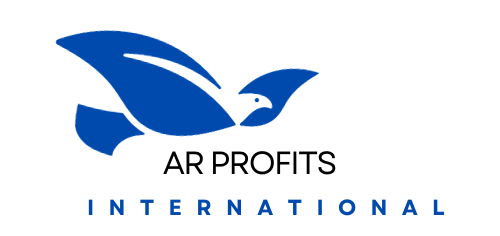The Pros and Cons of Affiliate Marketing
Affiliate marketing can provide an ideal way to earn a steady income from home without incurring upfront startup fees and through performance-based revenue streams.
Successful affiliate marketers are passionate about their chosen niche and promote products that align with their values and interests, which foster trust with their audience and result in more sales.
What is Affiliate Marketing?
Affiliate Marketing (or affiliates marketing) is an approach where an individual or group promotes products and services to their audience in exchange for a commission on sales. There are various methods in which an affiliate can promote a product or service; one popular way is through content.
To be successful at this type of marketing, you must establish trust with your audience. Once this trust has been built, you can identify their needs and pain points, and devise solutions accordingly – whether through suggesting certain products, services or brands which will meet these needs, or developing personalized services or creating your own offerings for them.
There are three primary forms of affiliate marketing: unattached, related and involved. With unattached marketing models, affiliates do not have any relation or connection to the products they are promoting; this can be risky as an affiliate may recommend something which doesn’t meet audience needs and risk damaging their reputation by doing so.
Affiliate marketers that specialize in related affiliate marketing possess intimate knowledge or expertise regarding the product they’re promoting, such as in promoting website-building services; for instance, having experience using it personally and understanding its benefits and features allows affiliates to build trust with their audience while offering recommendations that they feel confident using themselves.
Engaged affiliate marketing occurs when an affiliate has an intimate knowledge of the product or service they’re promoting, such as a blogger who uses and endorses a skincare product herself, can give their readers detailed information on this and other similar offerings to build trust and increase conversions.
Is it a good option for me?
Affiliate Marketing, like any business venture, comes with both advantages and disadvantages. While not for everyone, Affiliate Marketing can be an incredibly rewarding way to generate an income from home if done well. One main advantage is its low costs compared to traditional forms of marketing such as advertisements or brochures – plus it can be done from any location with access to an internet connection.
Unfortunately, it requires hard work and may take some time for results to show, especially initially. Furthermore, it requires extensive research in order to select products and services relevant to your audience as well as producing engaging content which converts clicks to sales.
One drawback of promotion can be controlling the quality of products you endorse. Recommending something that doesn’t deliver can damage your reputation and disillusion audience trust; to maintain credibility it is wise to only recommend high-quality items you would personally use yourself.
Be mindful that there may be dishonest affiliates out there who try to game the system by falsifying sales, installs or other actions in order to secure commissions – this can harm both your reputation and wallet if it occurs frequently.
Affiliate marketing can be more risky than other forms of advertising because you rely on other people to promote your products for you. Therefore, it is crucial that you partner with reliable affiliate networks who can manage risk while providing tools and support necessary for success. Developing strong relationships with audiences increases chances of converting them to paying customers.
Is it profitable?
Affiliate marketing should not simply focus on more sales; rather, its purpose lies in building trust with your audience by offering solutions to their problems and helping them meet their goals. A key to doing this successfully lies in understanding your niche deeply, creating quality content, and cultivating an extensive affiliate network.
With this in mind, persistence will pay off. Many affiliate marketers report earning steady income through their activities – more so than from any other form of digital marketing.
Running an affiliate program requires minimal costs, with most affiliates not needing to invest in advertising or marketing materials, since they can leverage existing platforms and content (like blog posts and social media updates ). As a result, their operating expenses can easily be covered with commission earned per sale.
Affiliates have several payment methods at their disposal for affiliate programs, from cost-per-action (CPA) programs where an affiliate is paid when certain actions are completed – like filling in forms, subscribing to services, downloading software etc – to tiered commission rates where higher levels of commission will be awarded when certain sales or referrals occur.
Affiliate marketing’s flexibility when it comes to payments and commissions makes it a highly attractive proposition for many businesses, and when approached correctly can even generate passive income – the holy grail of online marketing! By building relationships with your audience, recommending products that align with their success path, sharing personal experience using those products, and showing proof of benefits gained, affiliate marketing becomes far less of an arduous pitch-spray pitching task.
How much time and money do I have to put in?
There are various affiliate marketing methods, but the two most prevalent ways are CPA (cost per acquisition) or EPC (earnings per click). With CPA, you earn when someone clicks your link and takes an action such as subscribing to an email list or filling out an “Contact Us” form; with EPC you gain when someone installs an app or software product from you.
Affiliate marketing works best when you promote products that make sense for your audience. While it can be tempting to promote any product offering a large commission, such an approach won’t work long term; instead, focus on solving problems your target market faces and find solutions.
Once you’ve identified a problem your audience is facing, you can search for affiliate products to address it through either an affiliate network or by searching on Google.
Build an email list in order to stay in contact with your audience and send out updates regarding new content, which will increase both clicks and sales of affiliate ads.
Finally, social media channels should be utilized to drive traffic directly to your website. Since platforms like Facebook and Twitter do not allow for the customization of user experiences for customers and followers alike, it would be more effective to direct people directly to your website where you have greater control of how the experience unfolds – increasing profits through affiliate marketing.
What about the time-frame?
How much effort and time you invest into affiliate marketing will directly determine its results. Building up an audience on social media, creating high-quality content and getting enough traffic to your website are all required for affiliate sales to become viable; once this goal has been reached however, the results can be extremely lucrative.
When it comes to product recommendation, it’s essential that only endorse products you trust and actually use yourself. Doing this will build trust between yourself and your audience – leading to higher conversions. If you promote an item just to earn commission, your audience may pick up on this quickly and be less inclined to purchase from you.
There are various methods of including affiliate links into your content, including but not limited to:
An effective way to increase conversions is through content that your audience finds helpful – such as product reviews, top 10 lists or comparisons between various products in a niche space. Email lists can also be an excellent way to promote affiliate products by creating highly targeted audiences who have demonstrated interest in your content, making them more likely to convert than any other channel. Use an email list building and management platform like OptinMonster to build and manage your email list, then automate emails for affiliate promotion offers to be sent out directly. This strategy has proven highly successful at driving affiliate sales that could potentially become extremely profitable over time. Be wary of “offer fatigue”, as audiences may become bored with your promotions and become disengaged with you and turn away. Additionally, be wary of unsavory affiliate programs which may hijack your commissions with no recourse for recovery.




